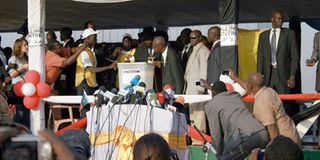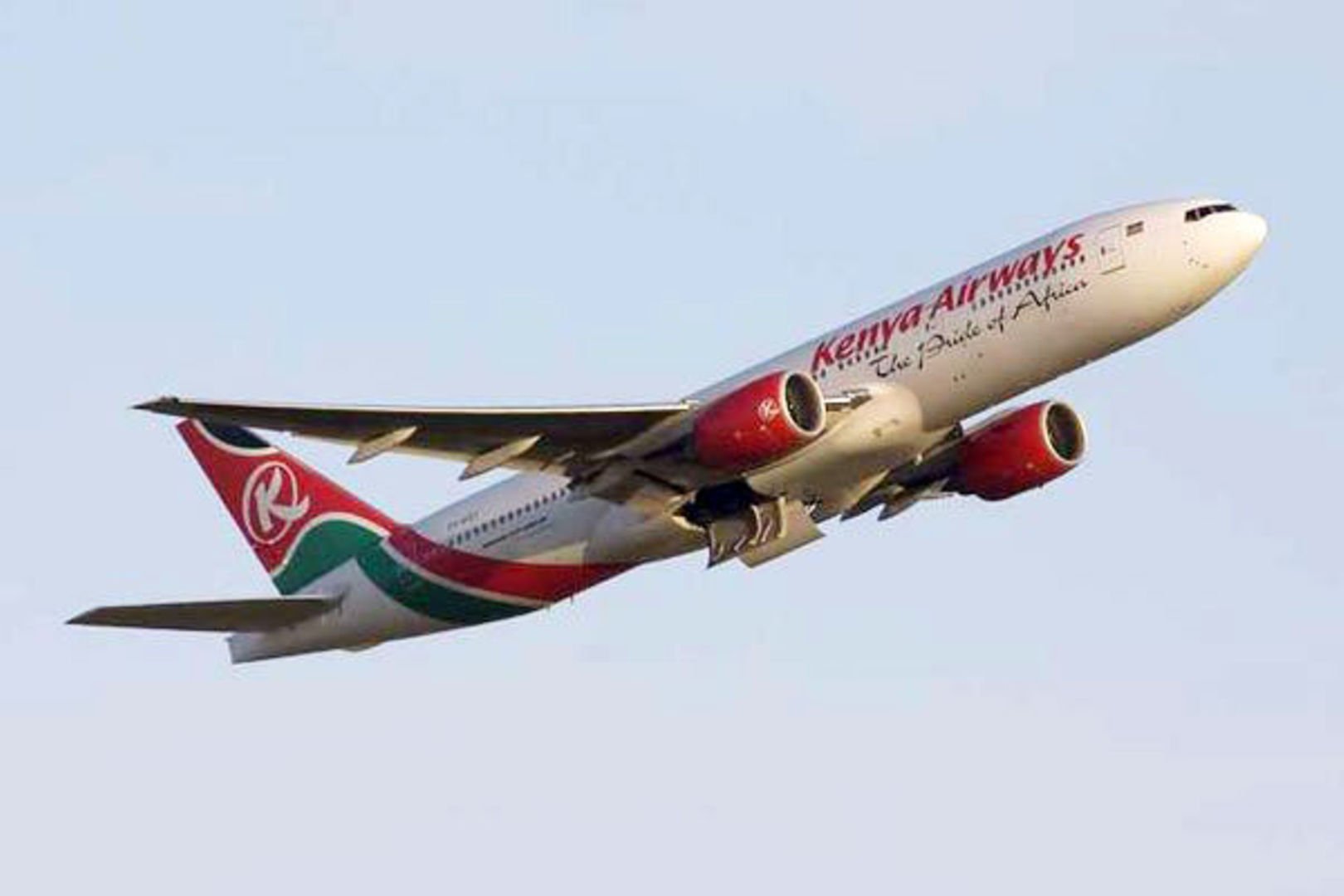Long queues as voting starts in Southern Sudan

Southern Sudan President Salva Kiir casts his ballot at a polling station in Juba in the first hours of a week-long independence referendum expected to lead to the partition of Africa's largest nation. Photo by Benon Herbert Oluka, Juba, Southern Sudan
“This is the historic moment the people of Southern Sudan have been waiting for,” declared Southern Sudan President, Gen. Salva Kiir, moments after casting his ballot to mark the start of voting in a historic referendum at the Dr Garang de Mabior Mausoleum in the capital Juba.
Gen. Kiir, who arrived to vote around 8am amidst ululations, told other Southern Sudan nationals who had turned up to participate in the historic event, which will help determine whether Sudan’s south secedes from the north or remains united, to be patient even if they do not vote today. The voting exercise will continue until Friday, January 15.
“I would like to call upon all the Southern Sudanese people to be patient in case one does not get time to cast his or her vote today. You have more days that you can cast your vote and therefore you must practice and exercise patience,” he said.
The Southern Sudan leader’s comments may have been prompted by the long and winding lines that were already evident at most polling stations as early as daybreak. In the polling station at the Dr Garang Mausoleum, for instance, the line wound up three times and stretched approximately more than 400 metres.
One such enthusiastic voter, Betty Acan Ogwero, who is a member of the Southern Sudan Legislative Assembly in Juba, said she had kept an overnight vigil as she waited to vote.
“I didn’t sleep because I didn’t want to oversleep and the day passes by. I wanted to be one of the first 100 people to vote,” she said. “I came at the centre here at 6:30am and the line was very long. I was pleased actually and not surprised because it shows the seriousness of the Southern Sudanese to cast their votes.
The referendum is the final part of the Comprehensive Peace Agreement (CPA), which was signed in Kenya on January 9, 2005. The CPA ended 21 years of war between successive governments in Khartoum and the Sudan People’s Liberation Movement (SPLA), which resulted in the death of more than 2.5 million people.
Referendum rules require Southern Sudan to garner at least 51 per cent of the total vote for the semi-autonomous region to be completely independent from the north. According to the rules, at least 60 per cent of the registered voters will have to cast their ballots for the exercise to be declared valid.
The Southern Sudan referendum has drawn interest across the world. The Chairman of the Southern Sudan Referendum Board, Justice Chan Reec Madut, says there are more than 1,400 international observers from different parts of the world overseeing the exercise.
Among the observers are former US president, Jimmy Carter, US Senator John Kerry and actor George Clooney. Senator Kerry said the resilience of Southern Sudan in its effort to secure an opportunity to decide its fate should serve as an example to the rest of the world.
“This is really quite remarkable. In every part of the world where people already have the right to vote, they need to stop and watch and think about what they have that other people fight so hard to get,” he said.
The exercise has largely gone on peacefully today, despite a gun battle between the Southern Sudan military and militias loyal to renegade Sudan People’s Liberation Army (SPLA) renegade officer, Gatluak Gai, two days ago that had threatened to dampened the mood in Southern Sudan ahead of today’s historic referendum.
The fighting took place in Unity State, which hugs the border with northern Sudan and is home to some oil deposits, and took place yesterday. The Southern Sudan Minister of Internal Affairs, Lt. Gen. Gier Chuang Aluong yesterday told journalists, “Our forces captured 32 prisoners of war, including two officers from Gatluak’s attackers. Other captured items were 30 AK-47 rifles, one RPG-7, and one LMG. Two attackers were also killed.”
A similar exercise is however not taking place in the oil-rich region of Abyei, which was expected to hold a similar referendum today to decide whether they will belong to the north or the south. Failure by Abyei to hold its referendum simultaneously as the one in the south, as had been agreed in the CPA, could become another point of conflict between the north and the south.



